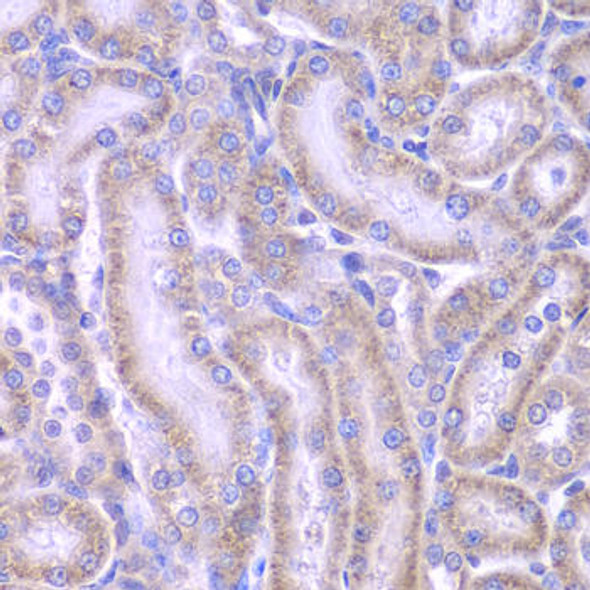Description
ACAA1 Monoclonal Antibody [PAT9E5AT] (CPAB0245)
The ACAA1 Polyclonal Antibody (CPAB0245) is a key tool for researchers studying ACAA1, an enzyme involved in fatty acid metabolism. This antibody, generated in rabbits, is highly specific to human samples and has been validated for use in Western blot applications. By targeting the ACAA1 protein, this antibody allows for the precise detection and analysis of ACAA1 expression in various cell types, making it an essential resource for studies in lipid metabolism, obesity, and metabolic disorders.ACAA1, also known as acetyl-CoA acyltransferase 1, plays a crucial role in the beta-oxidation of fatty acids, making it a target of interest in research focused on metabolic pathways and energy production.
Understanding the function and regulation of ACAA1 is vital for unraveling the complexities of lipid metabolism and developing potential therapies for metabolic diseases. The ACAA1 Polyclonal Antibody provides researchers with a valuable tool to explore the role of ACAA1 in health and disease, advancing our understanding of metabolic processes and potential treatment options.
| Product Name: | ACAA1 Antibody |
| Product Sku: | CPAB0245 |
| Size: | 5μg |
| Host Species: | Mouse |
| Immunogen: | Anti-human ACAA1 mAb, is derived from hybridization of mouse F myeloma cells with spleen cells from BALB/c mice immunized with a recombinant human ACAA1 protein 27-424 amino acids purified from Ecoli. |
| Clone: | PAT9E5AT. |
| Reactivity: | Human |
| Applications: | ELISA, Flow Cytometry |
| Purification Method: | ACAA1 antibody was purified from mouse ascitic fluids by protein-A affinity chromatography. |
| Isotype: | IgG2b |
| Background: | ACAA1 is part of the thiolase family of enzymes and is takes part in lipid metabolism. ACAA1 enzyme is localized to the peroxisome and catalyzes the conversion of acyl-CoA and acetyl-CoA to 3-oxoacyl-CoA in the fatty acid oxidation pathway. ACAA1 shows high enzymatic activity in liver, kidney, intestine and white adipose tissue in rats. ACAA1 deficiency causes pseudo-Zellweger syndrome. |
| Synonyms: | ACAA, PTHIO, THIO. |
| Storage Buffer: | For periods up to 1 month store at 4°C, for longer periods of time, store at -20°C. Prevent freeze thaw cycles. |






